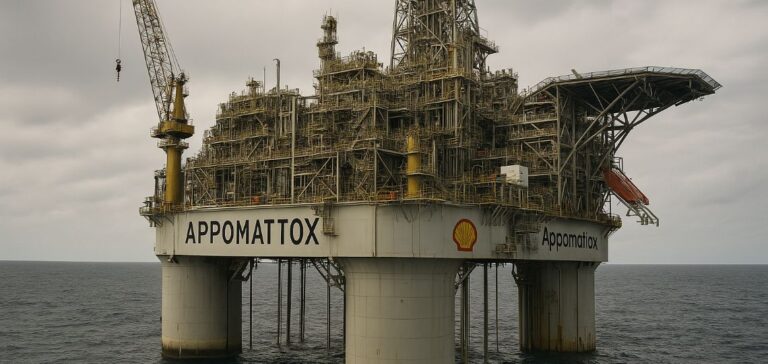Shell Offshore Inc., a subsidiary of Shell plc, has announced the start of production at Dover, a new subsea tieback connected to the Appomattox platform operated by Shell in the Gulf of America. The site, located in the Mississippi Canyon area approximately 273 kilometres southeast of New Orleans, lies at a depth of 2,300 metres. It is expected to reach a peak production rate of 20,000 barrels of oil equivalent per day.
Optimising existing infrastructure
The Dover development is part of Shell’s strategy to maximise the profitability of its deep-water oil hubs by extending their operational lifespan. It is the second subsea tieback to Appomattox, following Rydberg, which was brought online in February 2024. Production flows through a 28-kilometre pipeline to the platform, incorporating up to two wells. Shell holds a 100% interest in Dover and a 79% interest in Appomattox, with the remaining 21% owned by INEOS Energy Petroleum Offshore USA Inc.
Recoverable volumes and strategic positioning
Dover’s recoverable resources are estimated at 44.5 million barrels of oil equivalent, classified as proven and probable (2P) under the Society of Petroleum Engineers (SPE) classification system. This production launch supports the stable and secure energy supply of the United States, while consolidating Shell’s role as a leading deep-water operator in the region.
Output and regional outlook
According to Colette Hirstius, Executive Vice President for the Gulf of America, the Dover site illustrates Shell’s ability to extract more value from its existing basins. Supported by established infrastructure, this strategy streamlines both costs and production timelines in a region where the company claims one of the lowest emission intensities among members of the International Association of Oil & Gas Producers (IOGP).





















